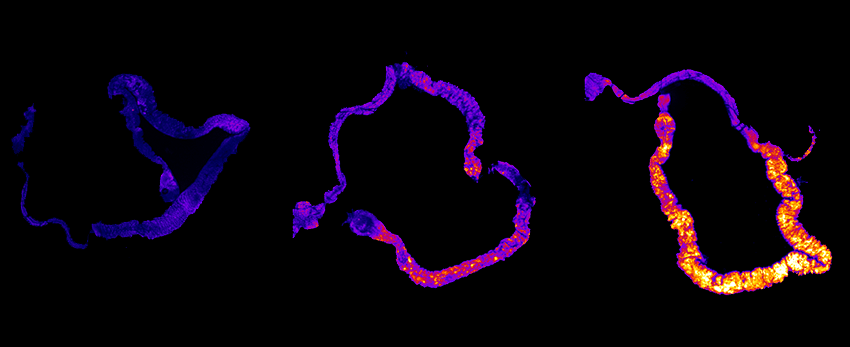Researchers at Harvard Medical School uncover the intricate connection between death due to sleep deprivation and the gut. While sleep studies mainly revolve around the brain, the control center of sleep initiation, a recent study shows that lethal sleep deprivation may initiate in the gut.
Sleep deprivation in animal models shows a build-up of a molecule in the gut called reactive oxidative species (ROS). When the molecule is present, sleep deprivation can lead to death. However, even in severely sleep-deprived animal models death does not occur when the ROS molecules neutralize via compounds with antioxidant properties.
Ongoing research is necessary to solidify connections between sleep and the gut. However, this study is a promising step forward in understanding how sleep and gut composition affect humans.
ROS Molecule Build-up in the Gut
Harvard researchers conduct tests of sleep deprivation and premature death in fruit flies. They determine that death follows a build-up of ROS molecules in the gut. Researchers also measure the effect of sleep deprivation and ROS gut composition on mice. The study shows that lethal sleep deprivation in mice follows the build-up of ROS molecules in the gut as well.

“We took an unbiased approach and searched throughout the body for indicators of damage from sleep deprivation. We were surprised to find it was the gut that plays a key role in causing death,” explains Dragana Rogulja in a statement. Rogulja is the senior study author and assistant professor of neurobiology in the Blavatnik Institute at Harvard Medical School.
Sleep-deprivation Study Series
Another series of small studies by Harvard researchers provide more insight surrounding this surprising connection. Study researchers genetically modify a subset of fruit flies to express a protein in some neurons that is sensitive to heat. These fruit flies stay in a heated environment causing the flies to remain in a constantly active state and suppressing sleep.
Death among genetically modified sleep-deprived fruit flies spikes at the ten-day mark, and all of these flies in the study die after 20 days. However, flies that are not genetically modified and are in the non-sleep-deprived control group but in the same heated environment live an average of 40 days.
Researchers explored what occurs at a cellular level at day ten and after to determine if any key indicators point to cell damage leading to lethal sleep deprivation in fruit fly animal models.
ROS accumulation in the gut spikes on day ten of sleep deprivation. Interestingly, molecular levels of ROS decrease in the gut when sleep deprivation ends. This same connection occurs in other animal models confirming the correlation of ROS accumulation due to sleep deprivation causing death.
“We found that sleep-deprived flies were dying at the same pace, every time, and when we looked at markers of cell damage and death, the one tissue that really stood out was the gut […] I remember when we did the first experiment, you could immediately tell under the microscope that there was a striking difference. That almost never happens in lab research,” says Alexandra Vaccaro. Vaccaro is a co-first author of the study and a research fellow in neurobiology at Harvard Medical School.
Neutralization of ROS Molecule Build-up
Researchers investigate ROS build-up in the gut from sleep deprivation even further by exploring if hindering the initial accumulation of ROS will increase lifespan. While researchers find that neutralizing ROS build-up prevents death from sleep deprivation, they discover that stopping the production of ROS molecules in the gut does not increase lifespan.
It is still unclear why extreme sleep loss increases gut ROS production leading to death. Study researchers speculate that sleep deprivation directly affects the gut or that the onset of ROS production originates in the brain. There is also the consideration that ROS may have systematic results in the body, or that death could result from significant gut damage. Conducting further research in this realm could help confirm or negate some of these scientific conjectures.
Future Benefits of Study Findings
There is hope in the medical and scientific community that ongoing research may help humans battling different forms of sleep deprivation. Researchers are optimistic of treatments and therapies that may develop to lessen the adverse outcomes and side effects of extreme sleep loss. Additionally, gaining a further understanding of bodily harm brought on by sleep deprivation may lead to interventions that guard against these types of internal injuries.
This study is published in Cell.
